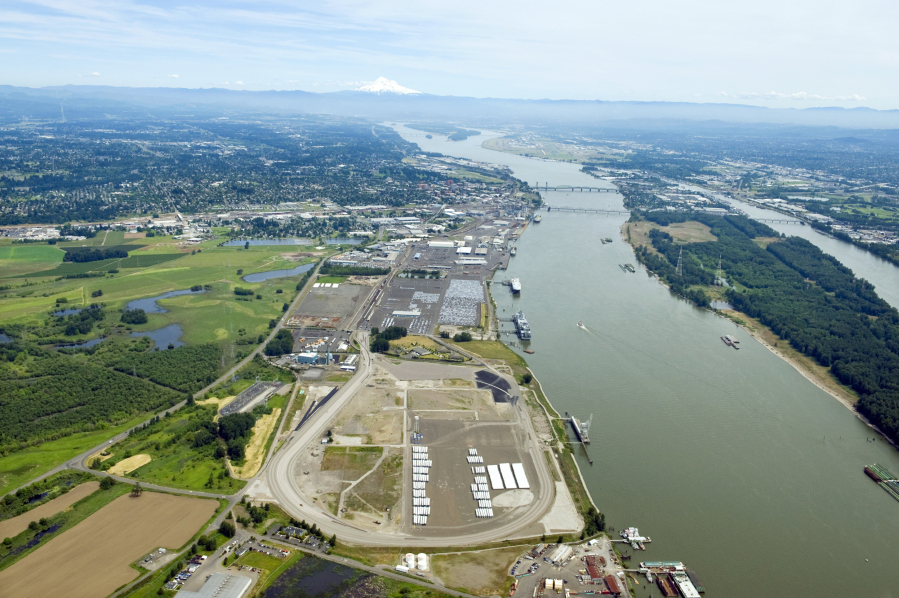Arguing that the proposed Vancouver Energy oil terminal creates “unprecedented and unacceptable” risks to the environment and Washington residents, Assistant Attorney General Matthew Kernutt in his closing brief recommended that the state’s Energy Facility Site Evaluation Council deny the project.
The 18-page document was filed Tuesday, the deadline for all parties to submit post-hearing briefs before the adjudication record officially closed for the terminal project proposed at the Port of Vancouver. The Port of Vancouver, Vancouver Energy and others also filed post-hearing briefs, but Kernutt’s was the first made available to The Columbian.
“Given these risks, the Counsel for the Environment recommends (the site evaluation council) recommend denial of the application for (the terminal),” he wrote.
The siting council doesn’t have the final say on whether the project is approved. It makes a recommendation to the governor, who makes the ultimate decision.
Kernutt served as the state’s Counsel for the Environment during the site evaluation council’s five-week adjudication of the proposal for what would be the largest oil transfer terminal in the United States, capable of handling up to 360,000 barrels of crude per day. Just as an attorney would represent any other client, the Counsel for the Environment represents the public and the environment during energy project hearings before the siting council.
“First, the evidence showed that the potential consequences associated with the increased transport of crude oil by rail through the state and by vessel on the Columbia River are massive,” Kernutt wrote. “Second, the evidence presented does not demonstrate that Washington and its residents will receive substantial or even minimal benefits from the construction and operation of the (terminal).”
Kernutt recalled evidence submitted and statements made by expert witnesses on both sides of the issue during the project’s adjudication hearing.
While Vancouver Energy may find the risks of operating the terminal to be reasonable and acceptable and within industry criteria, the state doesn’t have to tolerate the risks the company is willing to accept, Kernutt said.
He also argued that Vancouver Energy — a joint venture of Tesoro Corp. and Savage Cos. — unconvincingly downplayed the potential environmental impacts of an oil spill along the Columbia River and that they failed to sufficiently prove the project was needed.
In the brief, Kernutt said he anticipated Vancouver Energy and the Port of Vancouver will argue that the site evaluation council can’t deny the project, even partially, on the risks associated with shipping crude by rail because rail traffic is regulated by the federal government, not the state.
He said that denying the project because the terminal’s benefits don’t outweigh its risks, even when they include moving crude by rail, doesn’t mean the state is regulating rail transportation and safety.
Vancouver Energy says the terminal would generate $2 billion in economic value to the local and regional economy. The company also says the terminal will support 320 full-time jobs during the construction, and 176 on-site jobs and 440 off-site jobs once it’s built.
“While the project will provide some jobs to Washington residents as a result of the construction and operation of the terminal, those benefits alone do not outweigh the significant risks to Washington residents and the environment,” Kernutt wrote.
The Counsel for the Environment is an obscure but important feature of the state’s regulatory maze through which energy projects must pass. As counsel, Kernutt’s opinion could have a significant influence on the environmentally conscious Gov. Jay Inslee as the governor decides whether to approve the transfer terminal.
Jim Luce, who served as site evaluation council chairman from 2001 to 2013, said a Counsel for the Environment hasn’t recommended an outright denial of a project in the last 13 years.
“I think it’s highly unusual for a (Counsel for the Environment) to recommend outright denial,” he said. “They’ve recommended approval with conditions.”




